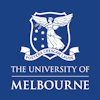|
Today is the the first Tuesday in November, the day of “the race that stops the nation” – or at least the race that slows down metropolitan Melbourne and parts of regional Victoria.
While the Melbourne Cup still holds a special place in Australian culture, interest has waned in recent years. Last year’s crowd was around 73,000, down from more than 100,000 in 2015, while the television audience has halved in the same period. Polling suggests more than 50% of Australians have little or no interest in the race.
So much for the crowds. What about the views of the key participants – the 24 thoroughbreds who actually put in the hard work of galloping around the track for three and a half minutes or so?
According to equine expert Cathrynne Henshall, it’s unlikely horses have any understanding that they are in a contest of speed, in which one of them will be deemed champion and the rest mere also-rans. As Henshall points out, the glossy quadrupeds have evolved to move in synchronised groups and would see no benefit (and perhaps even some risk) in getting ahead of their herd mates.
What jockeys are doing, Henshall suggests, is working hard to overcome a natural inclination to be uninterested in the whole idea of racing – a task that may feel familiar to the organisers of the event itself.
|

|
Michael Lucy
Science Editor
|
|

Cathrynne Henshall, Charles Sturt University
Horses naturally synchronise their running in groups – but ‘racing’ and ‘winning’ are human concepts.
|

Simone Casey, RMIT University
Unrealistic criteria and poor communication are causing people who need it most to lose an important income support.
|

Henryk Szadziewski, University of Hawaii; Graeme Smith, Australian National University
While the US is still primarily focused on countering Chinese influence in the region, Australia is making a real impact with its Pacific Engagement Visa.
|

Nataliya Ilyushina, RMIT University
The COVID pandemic has exacerbated staff shortages in health care. We need to think about how we can better retain staff in this sector.
|

Sarah Hamylton, University of Wollongong; Ana Vila Concejo, University of Sydney; Hannah Power, University of Newcastle; Shari L Gallop, University of Waikato
Growing awareness of sexual harassment and discrimination in the field prompted an international survey and research into potential solutions.
|

Dan Dixon, University of Sydney
In Question 7, Richard Flanagan writes of the contingencies of history, and troubles the distinction between truth and fabrication.
|
Politics + Society
|
-
Katie Pickles, University of Canterbury
Phar Lap’s famous 1930 Melbourne Cup victory united Australia and New Zealand in celebration. Almost a century on, people still flock to visit his remains, on display at three different museums.
-
Adrian Beaumont, The University of Melbourne
The slumping polls show how damaging the heavy defeat of the Voice referendum and continuing cost of living pressures have been to the prime minister and Labor.
-
Richard Shaw, Massey University
National and ACT will need to get past their animosity towards NZ First, and its mercurial leader Winston Peters, if the right wing coalition is to have any hope of forming a government.
|
|
Health + Medicine
|
-
Evangeline Mantzioris, University of South Australia
When we reach adulthood, protein requirements differ for men and women. But should you be eating more as you get older?
|
|
Science + Technology
|
-
Hallam Stevens, James Cook University
Venture capitalist billionaire Marc Andreessen dreams of ‘becoming technological supermen’ in a ‘techno-optimist’ manifesto built on a dark colonial vision.
|
|
Environment + Energy
|
-
Jeff Rotman, Deakin University
One barrier to climate action has been our own psychology and reluctance to take action. But as the crisis intensifies, some of these barriers have evaporated.
|
|
Books + Ideas
|
-
Julian Murphet, University of Adelaide
Let Us Descend is concerned with the neglected lives of the the poor, the despised, the dark, those barely scraping a living, but cannot capture the collective experience of slavery.
|
|
| |
|
|
|
|
| |
| |

|
| |
| |
| |
Featured Events, Courses & Podcasts
|
View all
|
|
1 January 2023 - 7 October 2026
•
|

|
21 - 22 November 2023
•
Melbourne
|

|
8 November 2023
•
Carlton
|

|
14 - 21 November 2023
•
Sydney
|

|
|
|
|
| |
| |
| |
| |
| |
|
|